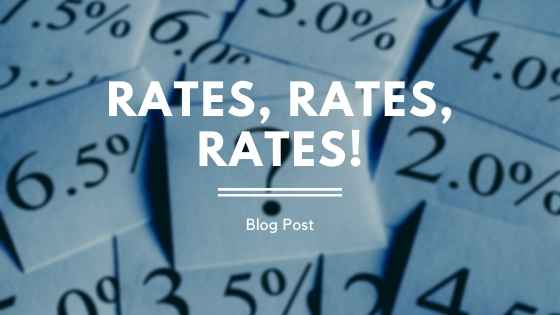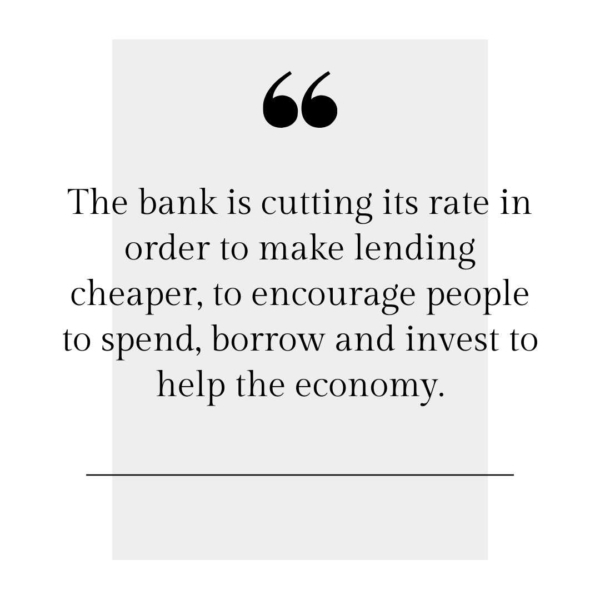Rates, Rates, Rates!
Are you confused about mortgage rates right now? Well, frankly, so are we! Rates dropped to an incredible low, and then shortly thereafter we heard mumblings that they were back on the rise. However, as you likely heard, rates then dropped not once, but twice more, following an emergency Bank of Canada drop over a weekend. But wait… then they went up again?!?
Welcome to the roller coaster that is “Mortgage Rates during COVID-19”. I will do my best to bring some light to this overly confusing time (in life, not just mortgages).
“Are you confused about mortgage rates right now? Well, frankly, so are we!”
First, I’m taking you back to around the week of March 9th. The prime rate had just dropped, and fixed rate mortgages were also incredibly low. We were booking mortgages into fixed rate terms as low as 2.24%! Based on the larger than normal spread between fixed mortgage rates and the bond yield*, as well as lower bank profits due to the drop in the prime lending rate, Mortgage Brokers across the county knew we were likely on borrowed time, and were head down into our keyboards inputting mortgage files, and taking every advantage of these magical rates.
Then the COVID-19 bomb was dropped. We had been following the news, were aware of this virus, and were cognizant of the fact that it was increasingly affecting our social lives. But then it became vividly real on the weekend of March 14th, when we saw an emergency rate drop by the Bank of Canada, and a full closure of all schools until September (in Alberta). We woke up to an incredibly different life on Monday, March 16th. At first glance, all seemed well in the terms of mortgage rates; a further drop in the Bank of Canada overnight rate** would mean the variable rates were decreasing, and consistent bonds would mean our fixed rates would stay low, right?
WRONG! In what would seem like a response to liquidity concerns because of the decrease in the MBS market***, together with concerns of increased mortgage defaults, and extreme application volumes, we have seen a quick correction to what we thought was a mortgage rate party. The discount on new variable rates was reduced, and fixed rates spiked. In a matter of days, we went from booking variable rate mortgages at prime minus 1.1% to now booking them at prime or higher. Fixed rates now booking around 2.84****.
There you have it; The “Coles Notes” version of where mortgage rates have been for the past two weeks. An incredibly confusing time in the world, on so many different levels. A loving reminder that this isn’t for you to understand, but rather our job as your trusted mortgage advisor. We are happy to discuss any rate or mortgage question you may have, and will always strive to do our best to ensure you understand how your needs are being met along the way.
Lastly, a recap of the above in video form. (I’m sorry I swore 🤷♀️).
Stay safe out there friends 💚
UPDATE!
P.S. The above was written and ready to publish for the morning of March 27th. Then we woke up to another emergency rate drop by the Bank of Canada. In short, this likely means:
– Those clients in current variable rates will likely see a drop in their mortgage rate (if their lenders decides to follow the Bank of Canada lead and also drop their prime rate)
– New variable rate mortgages may see a reduction with this rate drop if the banks reduce their prime. However, like the last two drops, they may also just increase their spread over prime as to not reduce the actual rate.
– This does not have a direct effect on fixed rates.
– The rate cut likely has the purpose of making lending cheaper, to encourage people to spend, borrow and invest to help the economy. My hope is that lenders will pass along the savings to our consumers and with any luck we can start to see the past rate increases flatten out. However, that is not the effect the last two drops directly had on mortgage rates, so we shall see.
*Bonds affect mortgage interest rates because they compete for the same type of investors. As bonds are a more secure, lower risk investment, mortgages must be priced a bit higher, and a typical rule of thumb is that the fixed rates mortgages sit about 1.5% higher than the bond yield.
** The Bank of Canada overnight rate drives our variable rate mortgages. The overnight rate is the rate which large banks borrow and lend one-day funds amongst themselves, and when that decreases, we usually see the banks pass on the savings to consumers by reducing their prime rates. All variable rate mortgages are based off of the prime rate.
***MBS (Mortgage Backed Securities) are investments made up of a bundle of mortgages. Banks essentially bundle funded mortgages together, and sell them to the MBS market. A decline in the MBS market results in the bank profiting less from the mortgages.
****Mortgage rates are dependent on a variety of factors, and are unique to each individual application, mostly dependent on the equity position of the property. This is a general rate as of today.




